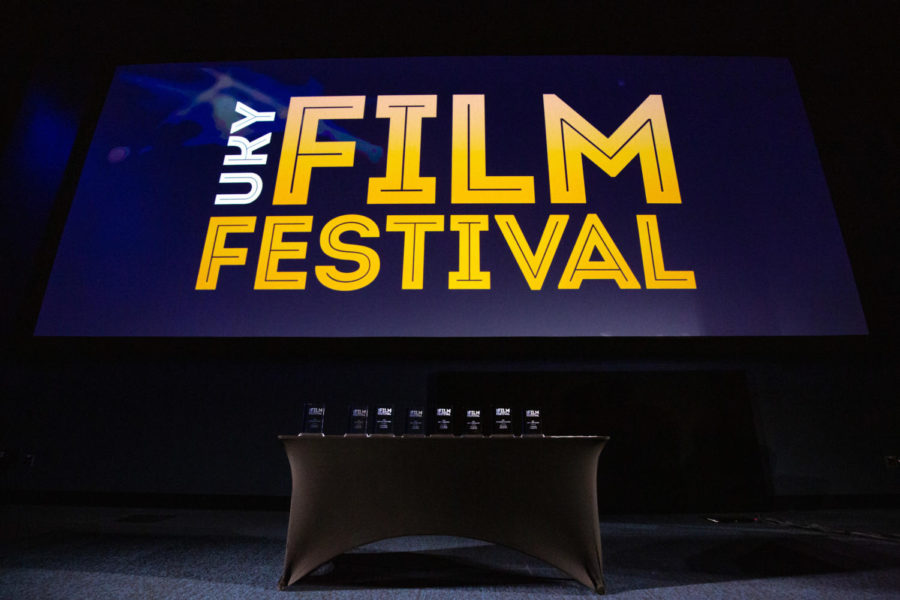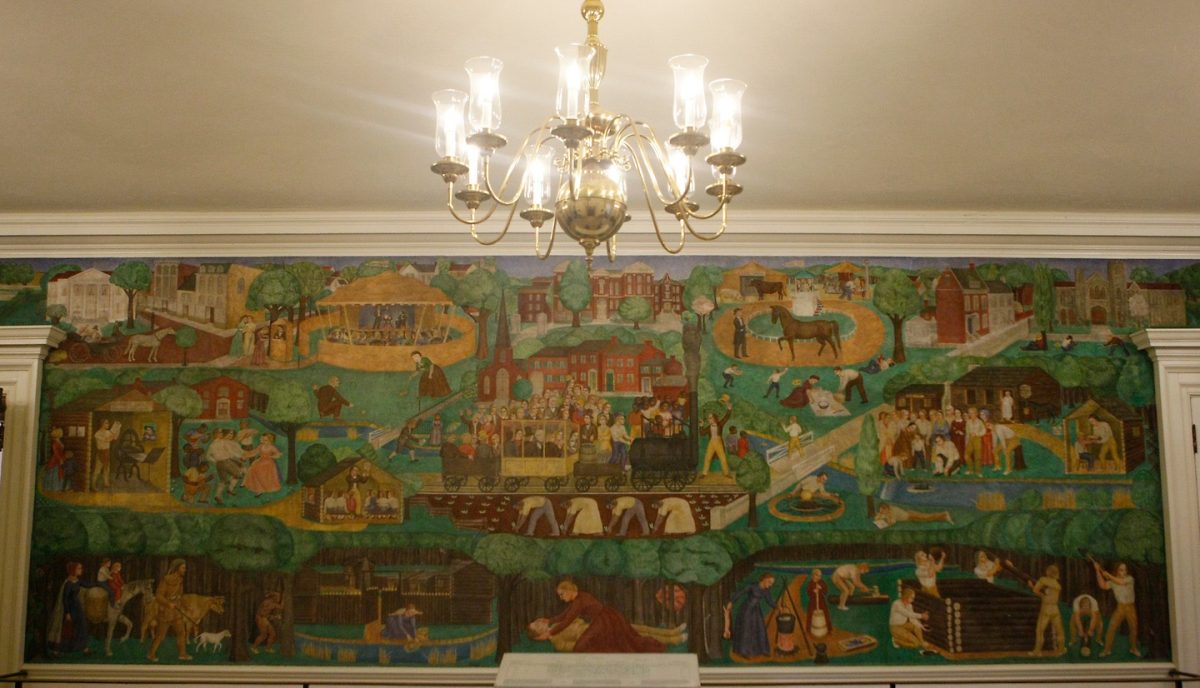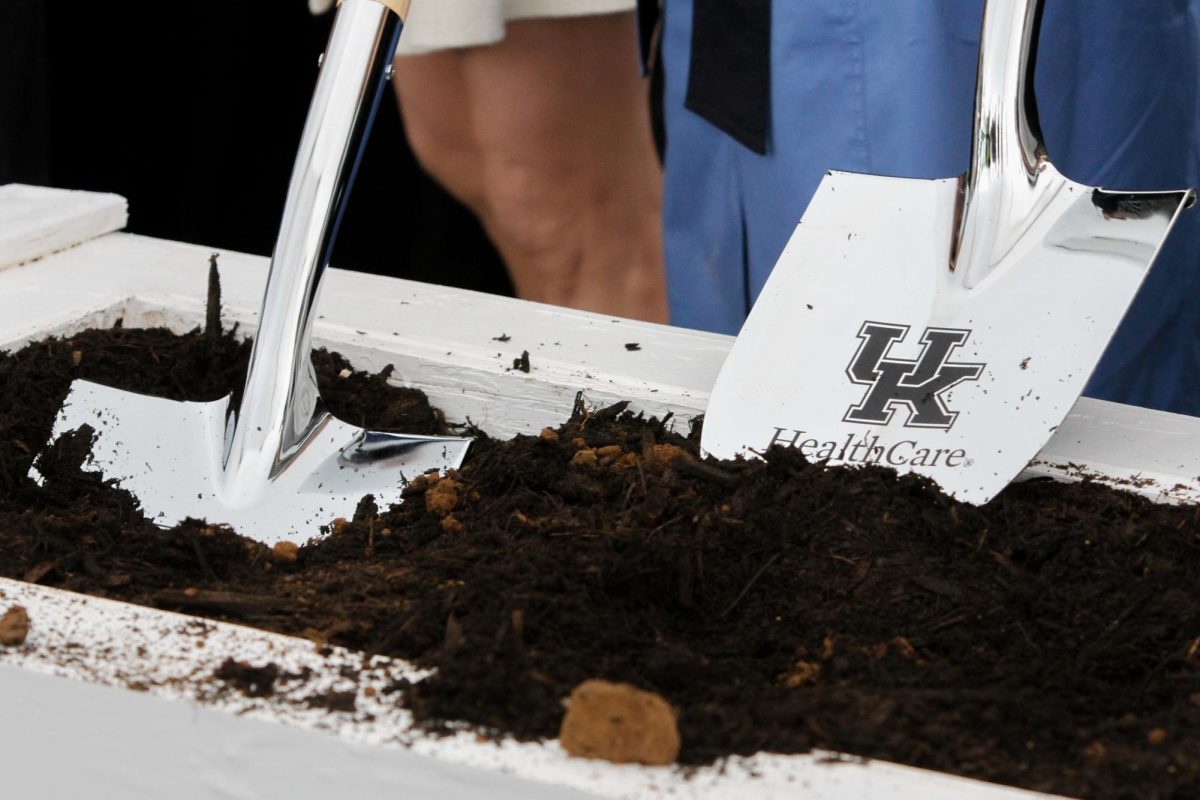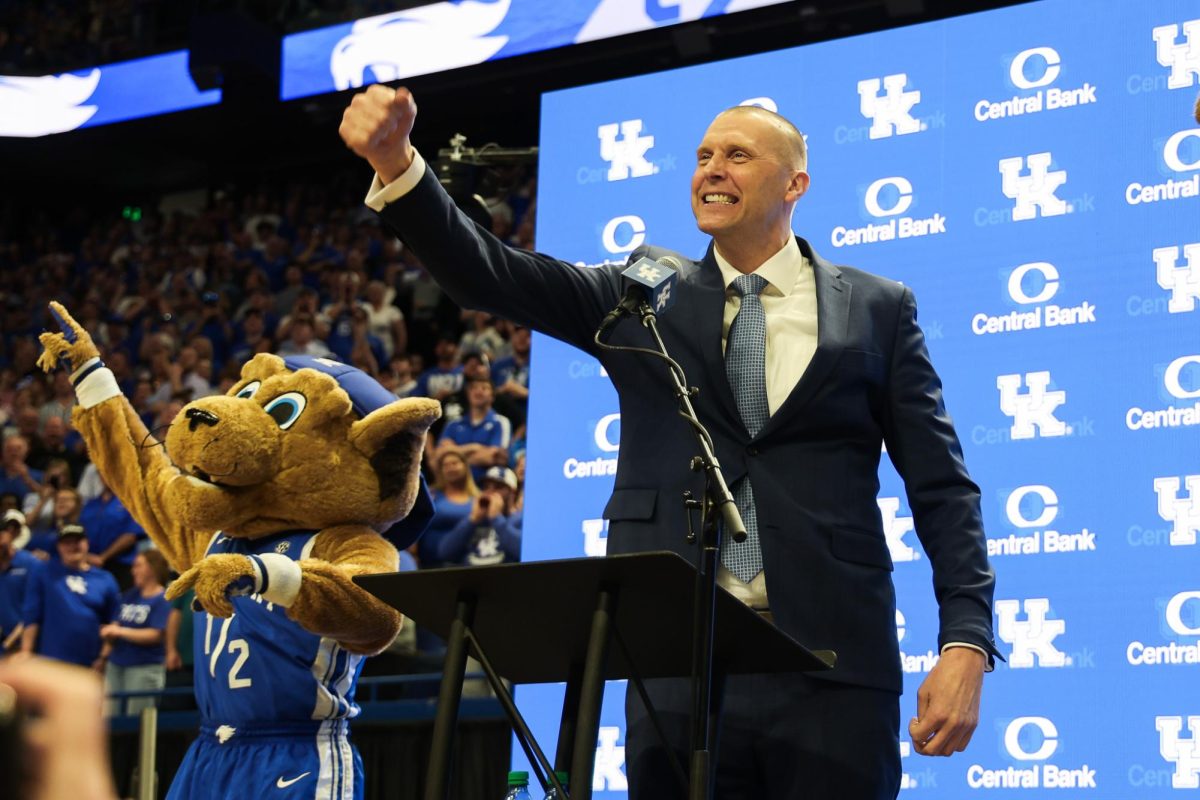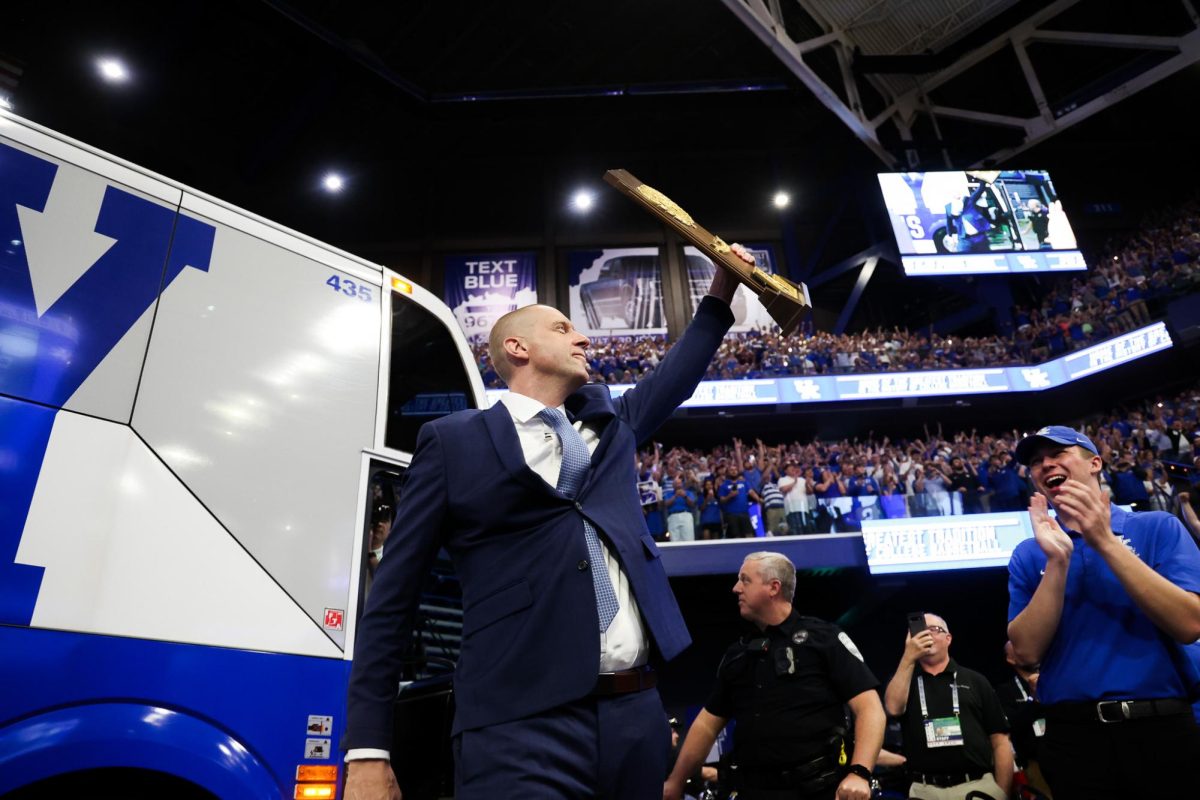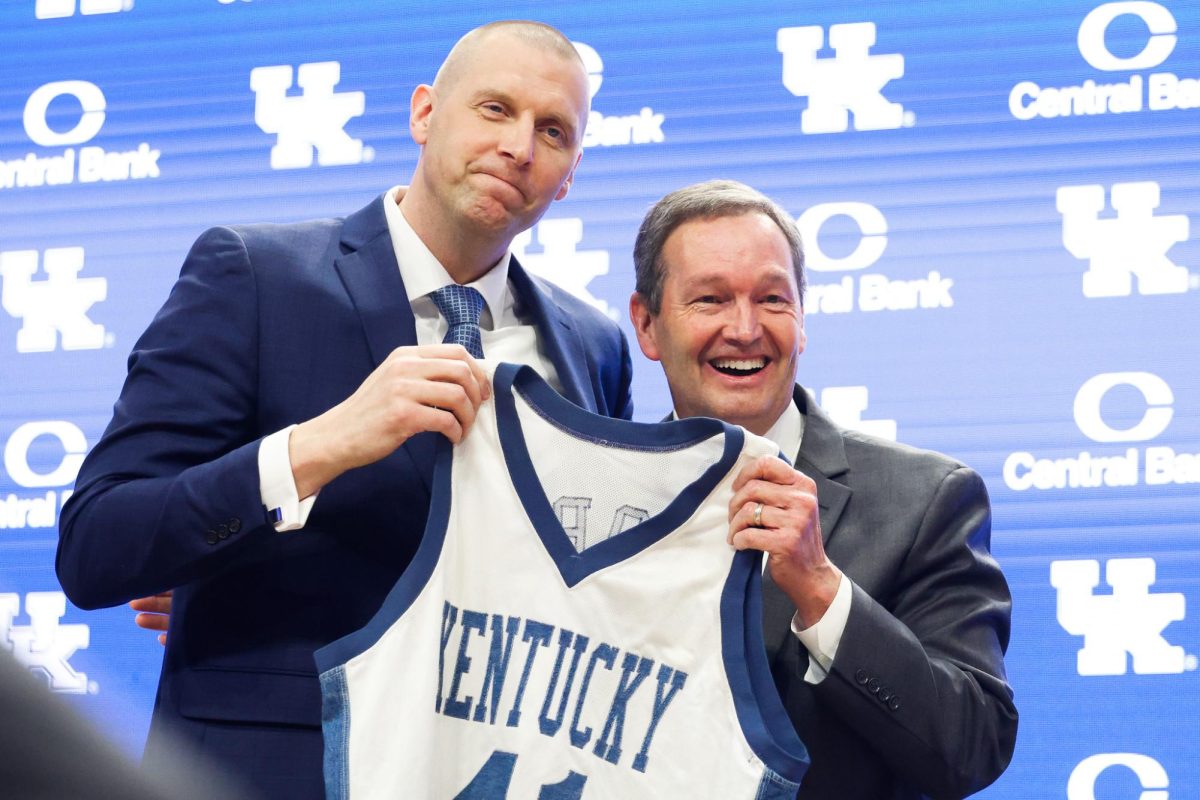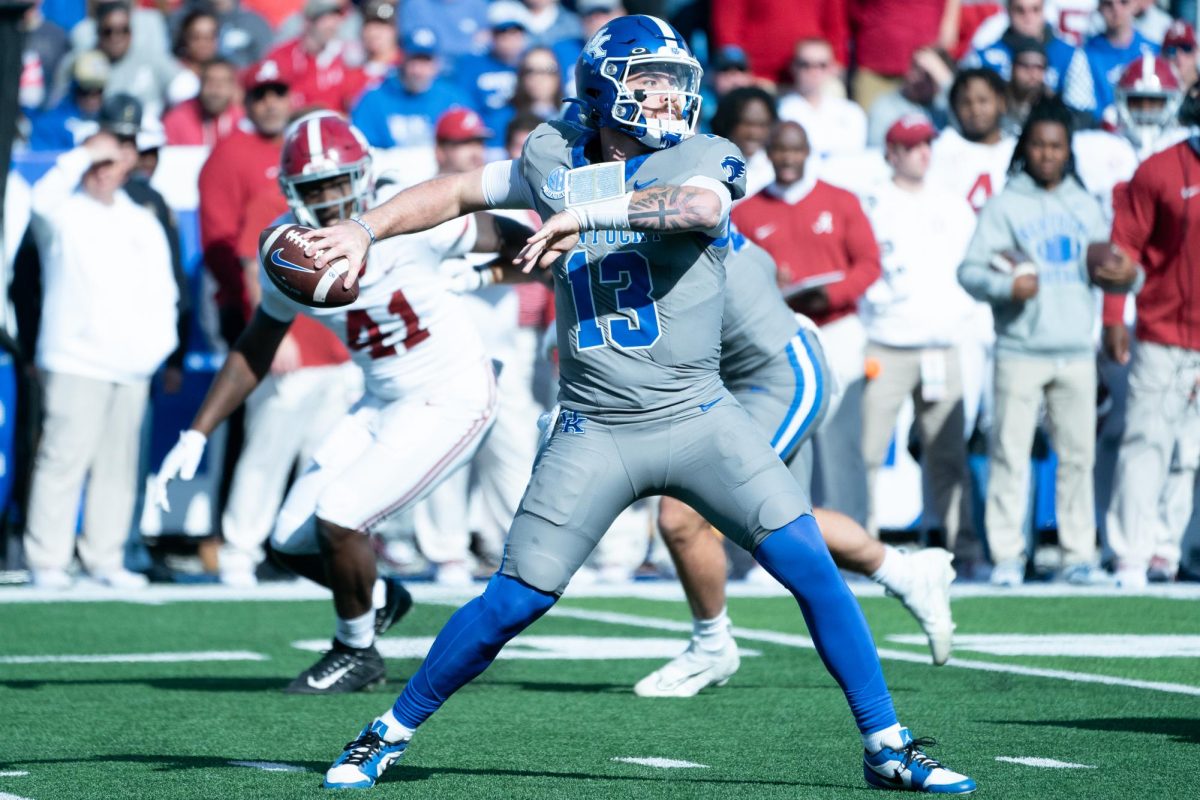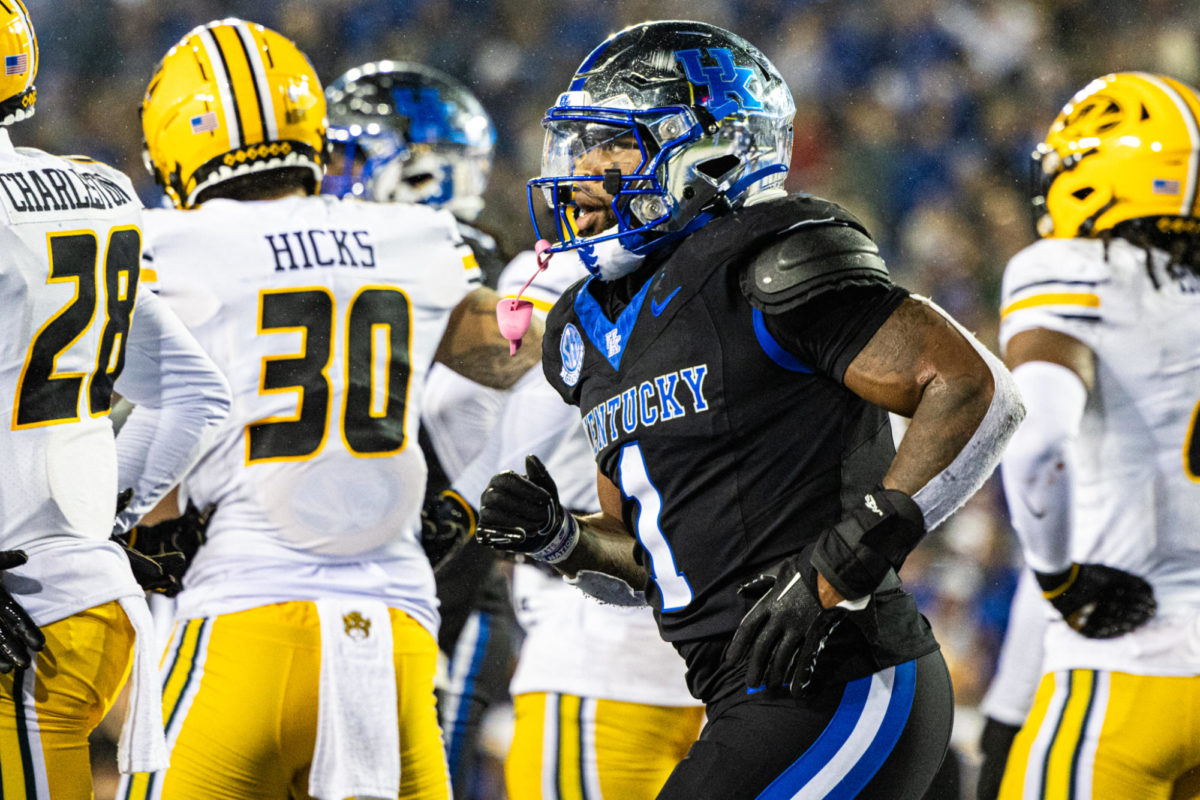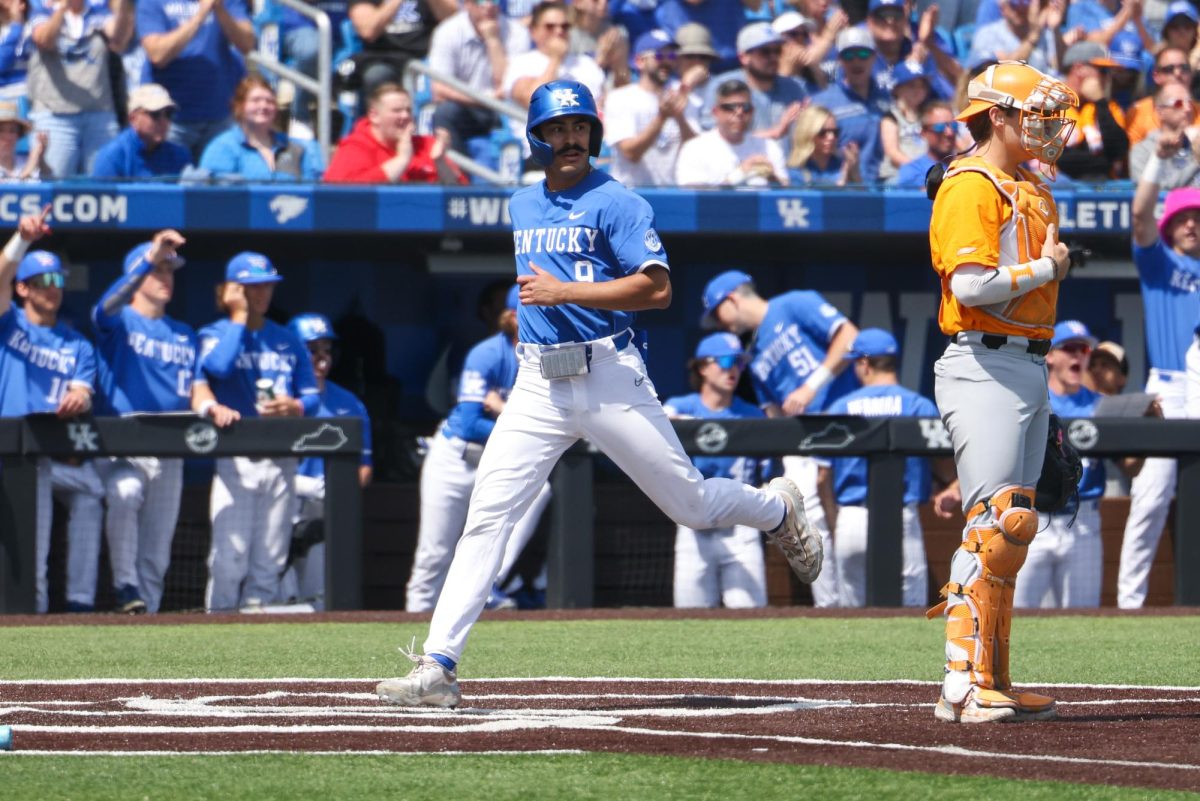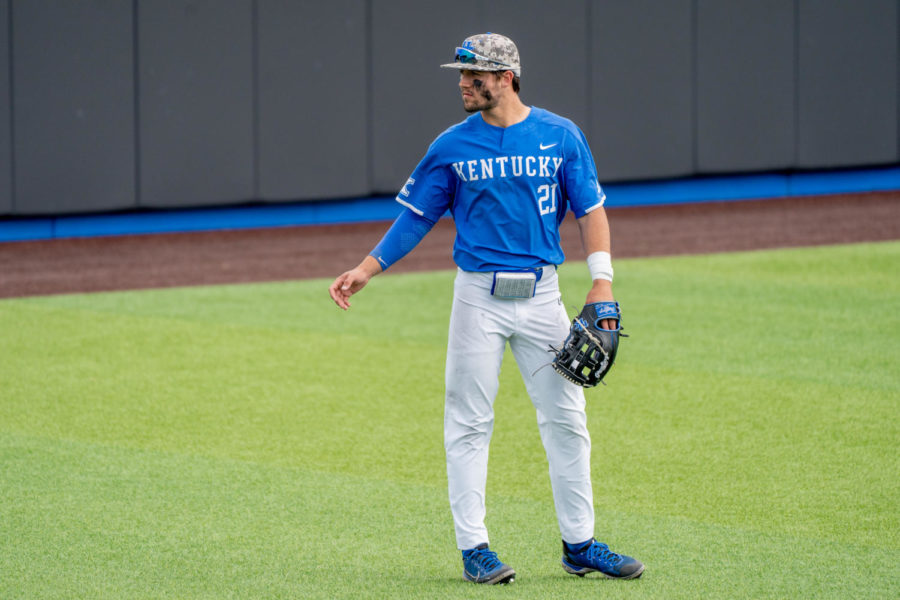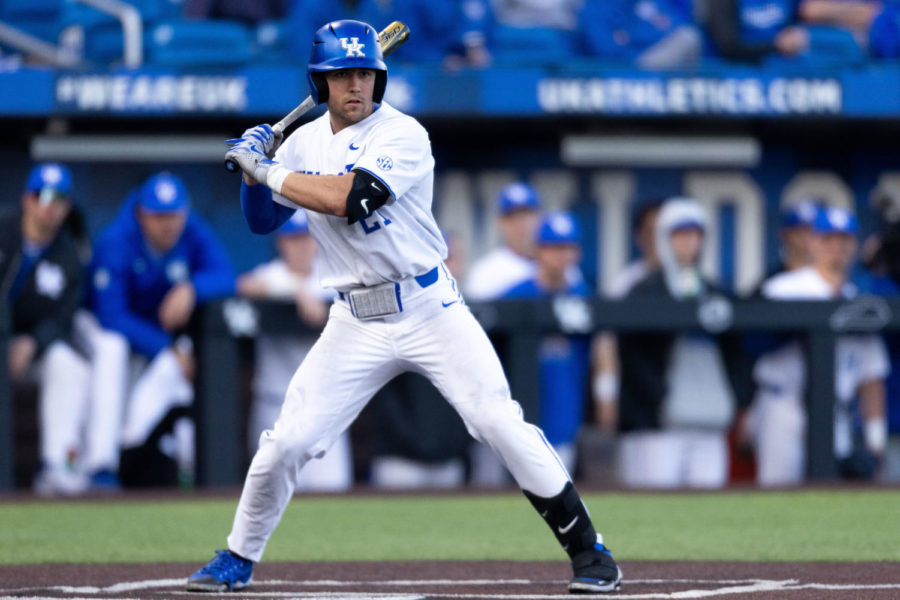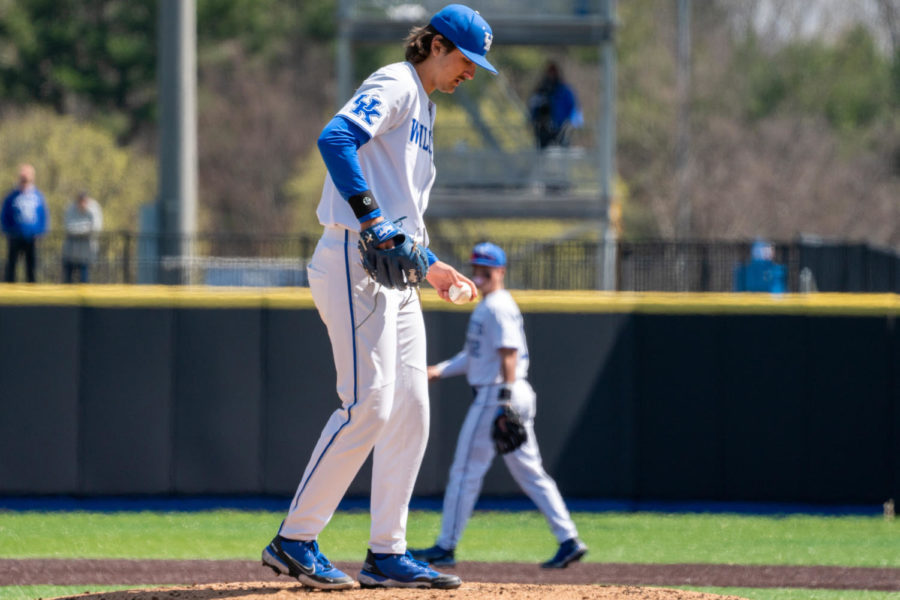Q&A with Lee Todd
September 18, 2008
UK President discusses university issues
Q:Â How do you prioritize your goals and decide what to put emphasis on during the year?
A: It’s changed since I started, when I needed to recruit people to fill positions. But now we have a lot of them in place. The thing that really kept me focused was the Top 20 Business Plan. When I recruit people, I tell them that we have a plan and a challenge. The first goal is undergraduate quality. The second is faculty quality.
My overarching goal is to get people in the state legislature and the governor to understand what that whole thing is about. I’m out there selling the bigger plan to the outside world so we can get their support. The other part of my plan is to sell it to the general population of Kentucky.
Q: What are some of the details for what a “top 20†research school is?
A: I try to just say “top 20 public university†because if we just base it on research, we would not do what I think we need to do. I want people to think of it as a public university. We are trying to catch the top 20 public schools, like Ohio State (University) and (the University of) Michigan. We want to stress research, but we don’t want it to overtake how we select faculty and how we invest in undergraduate programs.
How the plan works is we look at nine areas that we want to measure, and we came up with a statistical way to roll those into one number. We look at that for all the other public universities and rank them. We rank about 80 of them and see where we stand each year.
Q: Where does UK stand right now?
A: One area used to measure is student to faculty ratio. We got it down to 17:1 last year with a good budget, but we won’t be able to do that again this year. That’s one reason we held the freshman class to 4,000. Another of the parameters is graduation rate. We’re at 61 percent last year, which is the highest of public universities in the state. But it needs to be 72 percent for us to be top 20.
Q: What is UK’s stance on the six-pack fraternity house issue?
A: We have a different deal with each of those houses. We’ve been working with FarmHouse to find them a new location. We’re going to provide some land for them after they raise some money. It’s very likely that we would put academic buildings by the library to be closer to those students who live (on South Campus.)
In the long range, we’ll get back at least two of the three buildings over by (Bluegrass Community and Technical College) for academic purposes. We’re going to try to put the classes closer to where people live. But there are no immediate plans for the rest of the fraternity houses. We are looking at some property along Woodland Avenue that we could acquire.
Q:Â Has UK furthered its stance any on the Amethyst Initiative to lower the drinking age to 18?
A: I’d like to talk to some of these presidents to figure out just what they were thinking when they signed it, because this initiative says “here is a group of 100 college presidents who want to lower the drinking age to 18,†and I don’t think that’s what a lot of these presidents were thinking. Again, I think there’s got to be some research. If there is a debate, we’ll be there looking at the data. But my gut feeling is that I’m not in favor of it.
Q: There’s been a lot of discussion about the library. What exactly led to the hours being cut?
A: It’s really just a cost issue that we are facing. It is clear that we are going to have it open during midterms and finals week. The occupancy, from what I’ve heard, is pretty low during the hours it’s going to be closed. I’m sure it’s an inconvenience to some students.
Q:Â Is the library the biggest result of budget cuts this year?
A: We were going to add about 45 or more faculty members this year. That’s probably the biggest cut. When the budget was supposed to be cut 12 percent, we had to freeze 90 searches for additional faculty members. We have strategically continued to hire some in much-needed areas. We were chopping away at the student to faculty ratio.
We still cut administrative functions more than we cut academic functions. We moved back a bit, but we were still able to attract some very strong candidates. Eighty percent of our budget is in people, and that’s where the cut in the library came from.
Q: Can UK target private donations and ask people do donate for things like the library?
A: It’s hard to tell a donor where to put his or her money. The bottom line is that athletics is all some people will give to, but some will give to both academics and athletics. We’re missing an opportunity when we have an asset like UK basketball to not leverage that to bring in more money for the university. We are one of the very few universities that get money from athletics. Other schools don’t clear money. They have to invest money in athletics out of their general fund and tuition dollars.
Q: Congratulations on the black enrollment increasing this year. Would you like to see it continue to increase?
A: It’s my goal for that to continue to go up. Our freshman class this year was eight percent, which is above the average for the population of Kentucky, which is at about seven percent. But I still know there are some awfully good students who go to other schools or don’t go at all, so we need to work on that.
The thing I am very proud of is that we have the highest African-American graduation rate in the state. And last year, our retention rate for African-Americans was higher than our overall retention rate. Not only do we want to recruit more, but we also want to retain them and graduate them.
Q: Do you have a plan to keep this top 20 plan on deadline in the wake of budget cuts?
A: It was funded for the first two-year period, which was great. But we knew there was no guarantee that this would continue. We’re looking to see what impact the budget cuts will have, and whether we can still shoot for it by 2020.
The underlying push is that we just need to continue to bring in money from donors, research contracts and any other source so we can to try to keep going.  I’m a native Kentuckian, and I think this is the best goal that Kentucky has had since I’ve been around.
Q:ÂÂHave there been any discussions of increased funding for academics?
A: One thing this university hasn’t done over the years is name our buildings after people who have funded them. One way to get financing for buildings is to get a donor in and name that building after them. Facilities and scholarships will be the two areas we focus on.
ÂÂÂAt one time, we were spending a smaller percentage of our state and tuition money on scholarships than any other public school in the state. That’s why we weren’t getting the Governor’s Scholars. My first year we had 125. This year we have 389 Governor’s Scholars.
Q: Every year, for the last few years, there has been a 9 percent tuition increase. Judging by the economy and the state’s lack of funds, does UK have a game plan to keep tuition from going up?
A:If you were to look at the business plan, there was a graph in there that said if the state gives us this much money, we’ll raise tuition this much. If they give us less than that, we’ll raise tuition more. We knew that we didn’t want to raise tuition more than 9 percent.
The business plan said that if (the state) gave us the $22 million we wanted, then we’d still raise tuition 9 percent in order to hire more faculty and keep on with the plan. They cut us about $30 million and we still only raised tuition 9 percent because we didn’t feel like the market could bear it and we’re tired of putting more on students.
The game plan is to try to do the best we can do and find the money to try to keep tuition down, but yet keep the place moving. It’s a complex decision. Had we not raised tuition during the time I’ve been here, we wouldn’t have a lot of the faculty that we have right now.
Q: With five of our colleges being without deans, or with interim deans, do you think it will stunt the long term growth of these colleges?
A:The turnover is very typical. (The deans) typically give you a year’s notice, or some period of time notice. The natural process is that if they have been there for a number of years, they will at least give you a year’s notice, so they’ll stay in place and you can hire somebody. We’re not without deans in some cases, we have interim deans in three of those. It is a rotating situation.
There’s a lot of inertia in a given college and it’s not going to change dramatically in a one-year period. It gives us a chance to go out on the market, advertise what we do and get some people to come visit. It gives you a chance to get known. I see it as an opportunity and a natural thing that we’ll go through.
ÂÂÂÂ
Q: President Ramsey at the University of Louisville got his bonus and returned it in full and you kept a percentage of yours. What is your comment on that?
A: That’s a good point. When I got this position and the committee came to my office to negotiate a salary with me, I told them that I wasn’t that picky about what I made. Why didn’t they just look at the SEC presidents and give me the average (salary)? So, that’s how they set my salary. It turns out that Kentucky has this law that says that presidents can’t make more than the president of the Council on Postsecondary Education.
In order to accommodate that, they said “we’ll pay you a salary under that and then we’ll provide the rest of your salary through a payment.†It wasn’t a bonus, it was just the rest of the salary. It later grew into more of a major review and I was OK with that. But, it’s essentially the rest of the salary, and it got the ‘bonus’ term somewhere else in the process.
If you look at Dr. Ramsey, he gets a salary from the university and then he gets another check from their foundation. They also recommend him for a bonus, which he can or cannot take. If you look at total compensation, I’m probably the third-highest paid in the state right now, which is OK with me, but I’m not sure that it’s OK with the university.
I was willing to defer all of my bonus, but the way my contract is structured, since it’s part of a salary package, even if I said I wasn’t going to take that money, I’d still have to pay taxes on it. It’s complex and the way they chose to structure my compensation. If we don’t give out a raise to faculty and staff, I don’t get a raise either.
If you look at my contract, there’s a certain amount that I’m supposed to get each year and it’s a combination of (salary and bonus). It’s not a typical type of review process, but that’s how it is and that’s what I took.
Q: What types of things are being done to make the campus more multicultural?
A:The primary thing is the chief diversity officer with bringing J.J. Jackson to the table, which is a big move. I really enjoyed the meetings with the SUCCESS group because I think it’s a group that wanted to look at diversity broadly. J.J. is fully aware of what we want to have happen. She is smart enough not to give immediate satisfaction because she has to figure out the lay of the land and how to pull it off. She, in my mind, was a spectacular hire for us.
Not only has she had life experiences, but she’s had experiences at outstanding universities. Even more importantly, she did her doctoral thesis at Harvard looking at women and other minorities in the scientific fields. She’s analytically studied it. Her mandate is to figure out how to make us more multicultural. The goal is to be more diverse and we’ve tried to make some changes.
Q: What type of hands on approach are you looking to take in the university over the next few years?
A: I went to the Student Center last year and did the Fireside Chat, which was an interesting experience. It was an open forum and not very selective. I had 35 staff members at my house and had a breakfast for faculty and staff. I started that three years ago and I’d like to do that with students. Try to get a diverse group of students to come in and do it by invitation because you might get broader student impact.
I do a fair amount with students and we actually track it as part of the evaluation process. I don’t think I could ever walk across this campus enough to satisfy everyone. I’m pleased when I do walk around campus and students speak to me and say hello.
I try to do some UK 101 sections each year. I get invited to do some business school lectures on entrepreneurship and do some engineering lectures on business-related things. I actually get so many requests that I have to sort through them. You do something for someone one year, and they want you the next year and you just can’t do it. I do enjoy going into the classroom and to functions, but I probably don’t go to as many as people would like.
Q: You mentioned that for this year, you were hoping to add 45 more staff positions, but clearly, that’s changed. What are you looking at now?
A: I don’t know the answer to that. We had a reception for all of the new faculty and there were probably 45-50 people there. We had 90 searches going on when the budget was being discussed and then we cut out 45 of those positions. The number of faculty has probably stayed flat.
We held the freshman number to 4,000 this year because we didn’t want to have to hire an inordinate number of instructors. We’ve kind of surgically gone throughout the colleges who are searching for positions and talked to the deans to figure out who has the most strategic hire and we provide funding for those. The goal is to continue to build a quality faculty no matter what.
Q:Part of the issue with UK Alert is deciding what’s on campus and what’s not. Is there any discussion of redefining what is considered campus?
A: I think what really brought that into question was that recent situation where the information really came from Nicholasville and it took a while to get back here.
It has reared the question of how do we get the information and how do we get it out to people because, the fact is, we’ve got a lot of students who live within five minutes of here. Even though the abduction happened close to campus, the information had to come from Nicholasville, so that was a situation that’s a little bit obtuse for us.
It’s our goal to get those alerts out as fast as we can if it happens close to campus, but if we don’t know about it, then that delays things. I’m not sure that we’ve made a hard decision that we’re not going to report anything outside of our boundaries because we’ve been trying to share information with the local police.
Q: As far as sustainability and making campus more environmentally friendly, what type of things will be in place in the near future?
A: If you look at the green issues we’re doing in the buildings, in some of the recycling programs, we’ve picked up the tempo quite a bit.
We got a contract in research for developing electrolytic capacitors, which can store solar wind energy. That was a contract we won from E.ON. We’re the only university in the country to win that. We just received funding from (Congressmen) Hal Rogers and Geoff Davis and the state gave us $300,000 to study the coal-to-liquid transformation process to keep the carbon generation down.
I think we’re looking at sustainability from some of the things you see on campus, but then also some things that might have a long-term influence. It’s surprising to me how much green has gotten into the vernacular just in the last couple of years. I think people are taking it a lot more seriously than they ever did.

